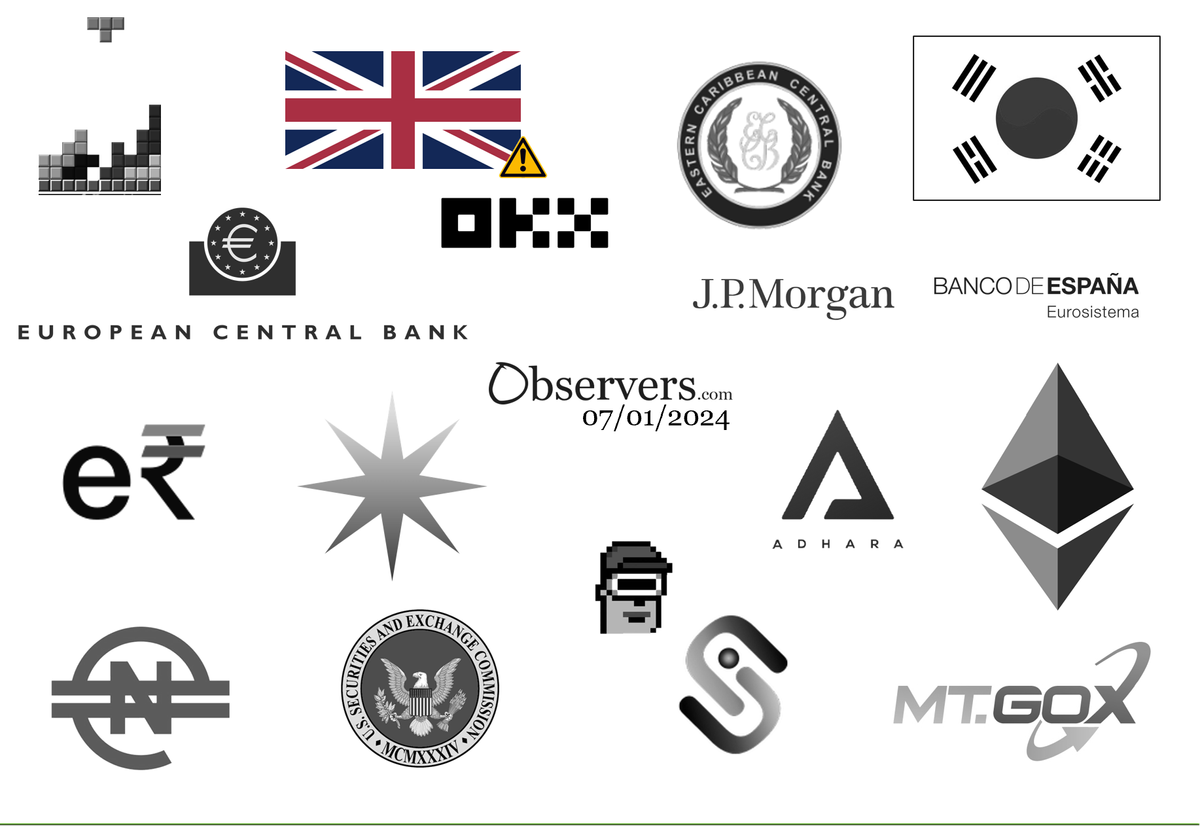
So, barely a week into the new year, and already the old guard is being outclassed by young upstarts.
For starters, there was the 13-year-old U.S. Tetris master who claimed to be the first human player to finish the Nintendo GameBoy version to completion since it was released in 1989. Completing the game took Willis Gibson just 38 minutes, and consisted of him reaching level 157, at which point the game crashes.
And then we had 16-year-old Luke Littler, who set the darts world alight by tearing through the competition at the PDC World Championship, before eventually succumbing to the new world number one in the final. Littler won the hearts of the crowd throughout his run at the event, and seems sure to have a bright sporting future ahead of him.
But who will outclass the old guard and rise to the top of the crypto world in 2024? And who is getting close to reaching level 157 and promptly crashing? Read the Observers Sunday Review every week to catch up with the latest news and find out.
Payments have been big news over the past couple of weeks, with Argentina legislating to allow contract payments to be made in bitcoin... or indeed any other kind of cryptocurrency... or beef, milk, salt, precious gems, unborn children (* unconfirmed). Well, if they truly ditch the peso then they'll certainly need something else to pay with.
After almost ten years of waiting, the creditors of the Mt Gox exchange collapse have finally started to see their first repayments arrive via PayPal. Unfortunately, even this seemingly simple task didn't go smoothly, as very soon reports came in of accidental double payments being made, and quickly requested back.
And South Korea wants to ban credit card payments used to buy cryptocurrency from foreign exchanges. The move is aimed at reducing money laundering and the illegal outflow of funds from the country.
Crypto exchange OKX has implemented changes to its U.K. business to comply with the country's regulations around crypto promotion. Both new and existing users will now have to fill in two questionnaires in order to demonstrate their knowledge of investment risks or else be refused an exchange account.
Sticking with regulations and regulators, the U.S. SEC has filed motions asking courts to consider its (partial) victory against Terraform Labs in its ongoing legal action against Coinbase and Binance. Judges recently ruled that Terraform Labs was guilty of selling unlicensed securities. Notably the SEC has not asked the courts to consider its partial loss against Ripple, which ruled that electronic sales on third-party exchanges were not considered securities.
However, the United States' most hawkish regulator has been crossing 'T's and dotting 'I's in what seems very much like a path to spot bitcoin ETF acceptance. The SEC has had meetings with the Nasdaq, New York Stock Exchange and Chicago Board Options Exchange this week, all standard procedures before a new type of financial instrument begins trading.
Aside from the future certainty (or not) of a spot bitcoin ETF, a much more divisive aspect of the Bitcoin network has threatened to become even more, erm... divisive (and divided). The creator of the BRC-20 token standard has urged users not to support a fork proposed by BRC-20 indexer and wallet provider, Unisat, which would allow it to follow the upcoming Ordinals Jubilee upgrade. Developer Domo has accused Unisat of using the move in an attempt to gain control of the protocol.
Meanwhile, Vitalik Buterin wants to see Ethereum PoS become simpler and lighter, having published a number of suggested starting points for reducing the validator overhead, along with an updated roadmap for the years ahead.
Radiant Capital lost $4.5 million after suffering from a targeted flash loan attack, which caused the cross-chain lending protocol to temporarily pause its markets on the Arbitrum network.
And finally, our first Banking and CBDC Roundup of the new year included the Eastern Caribbean Central Bank looking for suppliers for its DCash 2.0 project, the Bank of Spain choosing partners for its CBDC pilot, and the European Central Bank extending another five calls for proposals for various features of its digital euro project. All that while the Royal Bank of India hit its target of one million e-rupee transactions per day.
Anyway, we're off to work out how to stop a bunch of teenagers from legitimately being better at stealing our jobs.
